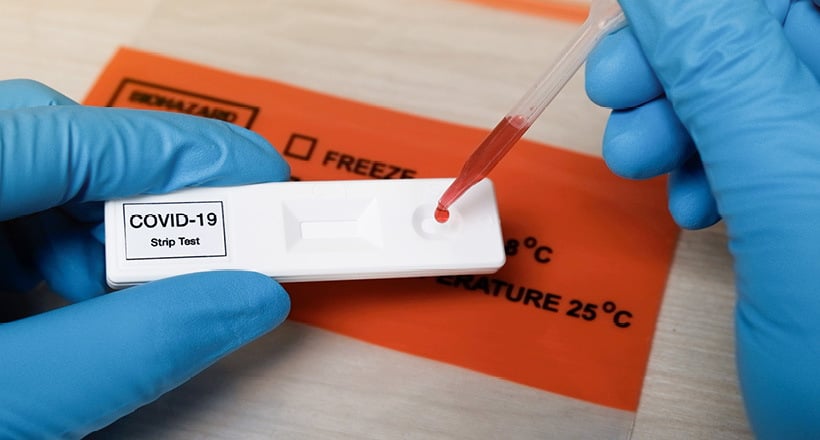Now that some universities and other institutions are making it a requirement to be vaccinated, more people are opting to get the COVID vaccine. Many people who received their vaccines are thinking about getting an antibody test to see if the vaccine “worked.” Or, if you donate blood, you may get back your antibody test results afterward. Antibody testing identifies individuals who may have developed an immune response after infection with SARS-CoV-2, the coronavirus responsible for COVID-19.
While the CDC does not recommend getting an antibody test to determine your immunity to the coronavirus, there are some benefits to getting the test. The allergists at NY Allergy & Sinus Centers are here to help you decide when to get an antibody test and how to analyze your results.
When Do You Need An Antibody Test?
Doctors may recommend antibody testing for COVID-19 if:
- You had symptoms of COVID-19 in the past but weren’t tested
- You’re about to have a medical procedure done in a hospital or clinic, especially if you’ve had a positive COVID-19 diagnostic test in the past
- You’ve had a COVID-19 infection in the past and want to donate plasma, a part of your blood that contains antibodies that can help treat others who have severe cases of COVID-19
You might also get an antibody test to check your levels of antibodies. Higher levels of antibodies are likely to lead to a stronger immune response to the vaccine. Research suggests that even a mild coronavirus infection leaves behind lasting antibody protection.
Analyzing Your COVID-19 Antibody Test Result
A positive result means that you had COVID-19 recently, even if you didn’t show any symptoms. A negative result means that you haven’t had a recent COVID-19 infection. However, it doesn’t mean you haven’t had a prior or current infection. It takes one to three weeks after infection for antibodies to be detectable.
Different serology tests detect antibodies to different parts of the virus. Your test could detect either binding or neutralizing antibodies. Binding antibody tests are widely available and detect whether you’ve developed any antibodies in response to a COVID-19 infection. However, they do not indicate how extensive or effective your immune response is. Neutralizing antibody tests are a newer and more sensitive test that detects a subgroup of antibodies that may inactivate the virus. This test can be done after you test positive for binding antibodies.
Where To Get A COVID-19 Antibody Test
We offer antibody testing at NY Allergy & Sinus Centers. Just book an appointment at one of our 10 allergy centers throughout New York City. We also perform in-office Rapid COVID and Influenza A+B testing. Patients will have a quick televisit followed by an in-office nasal swab test using Abbot ID NOW testing.
If you need an assessment to determine your risk for experiencing an allergic reaction to the COVID-19 vaccine, call our allergy specialists at (212) 686-6321. For more information on vaccine reactions, check out our interview with board-certified allergist Dr. Lin here.
Meet the Physician Collaborator
Dr. Grossman is a physician specializing in both Pediatric and Adult Allergy & Immunology. He earned his medical degree at the Albert Einstein College of Medicine. He completed his residency in Pediatrics at Montefiore Medical Center, where he also completed his Allergy and Immunology Fellowship. He is board-certified in Pediatrics as well as Allergy and Immunology and is a member of the American Academy of Allergy and Immunology (AAAAI), the American College of Allergy, Asthma, and Immunology (ACAAI), and the New York Allergy and Asthma Society (NYAAS). Dr. Grossman treats an array of allergic and immunological disorders, with interests in food allergy, asthma, perennial, and seasonal allergies. He enjoys treating both children and adults and looks forward to providing them with outstanding, individualized care.

